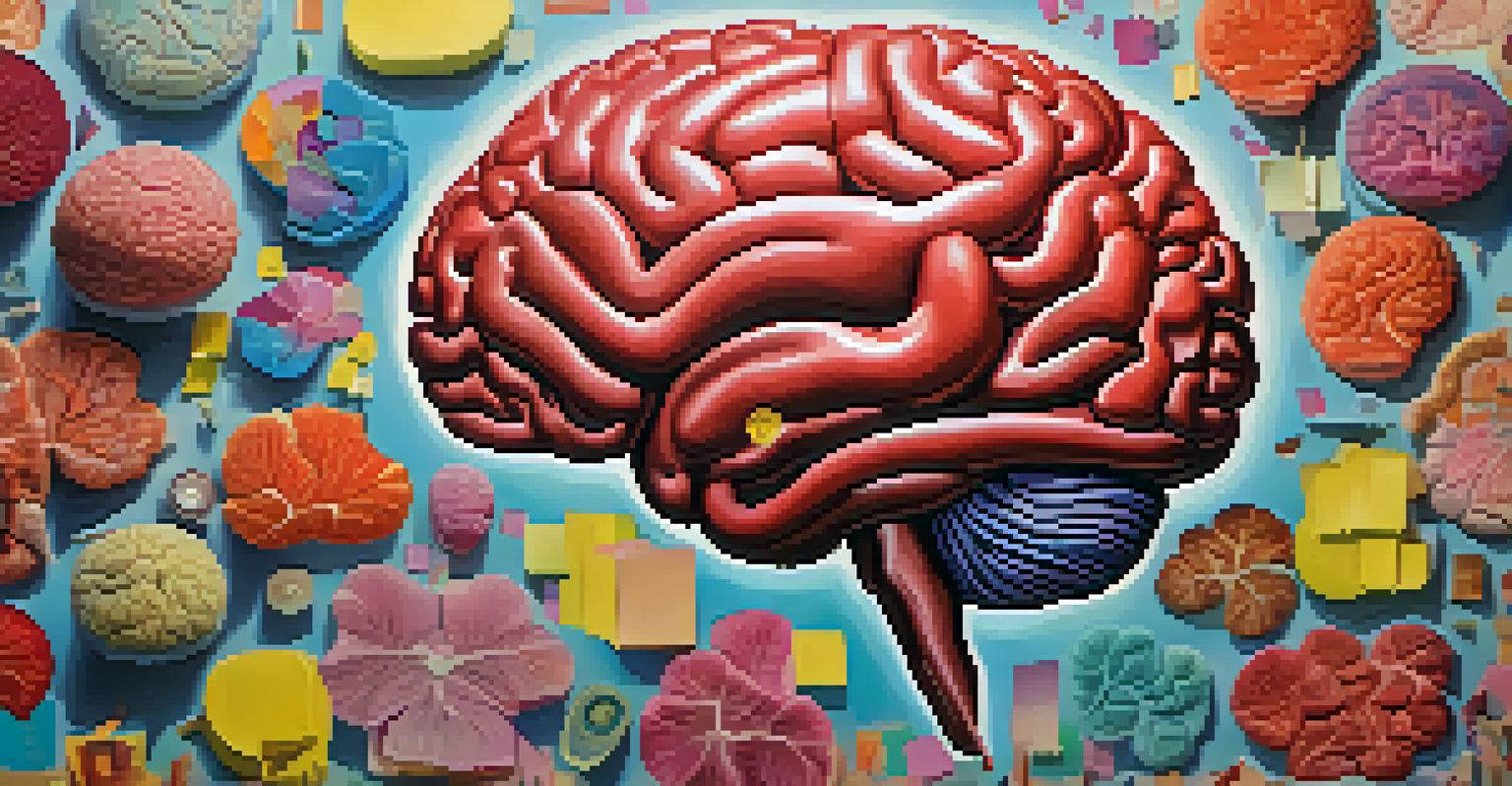Neuroscience of Memory: How We Encode and Retrieve Memories

What Is Memory and Why Is It Important?
Memory is our brain's ability to store, retain, and later retrieve information. It's essential for learning, shaping our identity, and influencing our decisions. Without memory, we would struggle to recognize loved ones or recall experiences that define us.
Memory is the treasure house of the mind wherein the monuments thereof are kept and preserved.
Think of memory as a vast library where each experience is a book. When we need to recall a specific moment, we simply reach for the right title. This process is fundamental to how we navigate our daily lives, helping us learn from past experiences and make informed choices.
In essence, memory isn't just about recalling facts; it's about connecting our past with our present. This connection is what makes us human, allowing us to grow, adapt, and form relationships.
The Science Behind Memory Encoding
Encoding is the first step in forming a memory. It transforms sensory input into a format that our brain can process and store. This process can be influenced by various factors, including attention, emotional state, and the context in which we experience something.

Imagine encoding as taking a snapshot with your camera. Just like a camera captures light and creates an image, our brain captures experiences and creates memories. The clearer the snapshot, the easier it is to recall later.
Memory's Role in Identity
Memory enables us to learn, shape our identities, and navigate life by connecting our past with our present.
Different types of encoding exist, such as visual, acoustic, and semantic. Each type serves a unique purpose, helping us remember things based on sight, sound, or meaning, thus enriching our memory storage capabilities.
Types of Memory: Short-term vs. Long-term
Memory can be broadly categorized into short-term and long-term types. Short-term memory holds information temporarily, typically for about 15 to 30 seconds, while long-term memory stores information for extended periods, sometimes even a lifetime.
The faintest ink is more powerful than the strongest memory.
Think of short-term memory as a sticky note on your desk that helps you remember a phone number just long enough to dial it. In contrast, long-term memory is like a filing cabinet where you can keep important documents organized and accessible for years.
Understanding these types helps us grasp how information transitions from fleeting moments to lasting impressions. This distinction is crucial for learning strategies and improving our memory retention.
The Role of the Hippocampus in Memory Formation
The hippocampus is a small, seahorse-shaped structure in the brain vital for forming new memories. It acts as a hub, helping convert short-term memories into long-term storage, making it essential for learning and navigation.
Imagine the hippocampus as a librarian who organizes and categorizes the books in our memory library. Without it, new experiences would struggle to find a place, leading to confusion and memory gaps.
Hippocampus and Memory Formation
The hippocampus is essential for converting short-term memories into long-term storage, acting like a librarian for our memories.
Damage to the hippocampus can result in significant memory loss, underscoring its importance. Understanding its function can help us appreciate the intricate workings of our memory system.
Memory Retrieval: How We Access Our Memories
Memory retrieval is the process of accessing stored information, allowing us to recall past experiences or learned facts. This process can be triggered by cues, emotions, or even the context in which we first learned the information.
Think of retrieval as opening a file cabinet and searching for a specific document. Sometimes, you might need a hint, like a keyword or a related experience, to find what you're looking for, making retrieval a dynamic and context-dependent process.
Sometimes, retrieval can fail, leading to the frustrating experience of forgetting. However, understanding the cues and contexts that aid retrieval can improve our ability to access memories when we need them most.
The Impact of Emotions on Memory Encoding and Retrieval
Emotions play a significant role in how we encode and retrieve memories. Strong emotional experiences can enhance memory retention, making certain moments more vivid and easier to recall later.
Consider how you might remember a wedding day or a graduation ceremony; the joy and excitement of these events create lasting impressions in your mind. Emotions act as powerful anchors, helping to solidify these memories in our brain.
Enhancing Memory Strategies
Techniques like visualization, association, and regular practice can significantly improve our memory encoding and retrieval abilities.
Conversely, negative emotions can also impact memory. Traumatic experiences, for instance, might lead to vivid, intrusive memories that can be difficult to manage. Understanding this relationship can help us navigate our emotional landscape and its influence on memory.
Improving Memory: Techniques and Strategies
There are various techniques to enhance memory, making it easier to encode and retrieve information. Strategies like visualization, association, and repetition can significantly improve our ability to remember.
For instance, when studying, you might visualize concepts as images or create acronyms to remember lists. These methods transform abstract information into relatable forms, making it stickier in your memory.

Incorporating regular practice, adequate sleep, and a healthy lifestyle can further boost memory function. By understanding how our memory works, we can adopt habits that support and strengthen this essential cognitive ability.